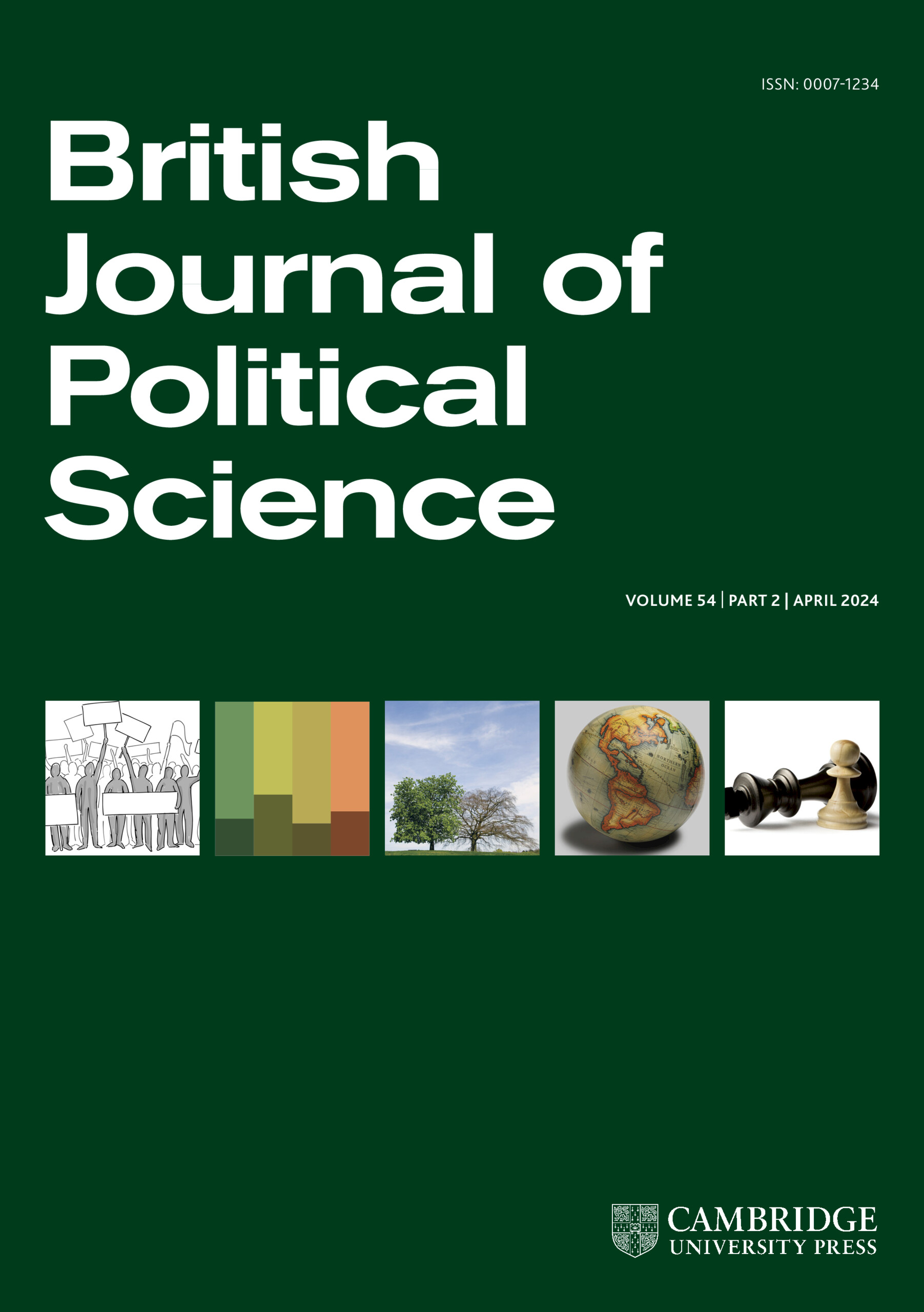启发式预测:为什么利益集团提示可能无法帮助公民追究政客的责任
IF 4.6
1区 社会学
Q1 POLITICAL SCIENCE
引用次数: 1
摘要
一种有影响力的观点认为,选民利用利益集团的评级和支持来推断他们的代表的行为,并追究他们的责任。本文质疑了这篇文献中的一个关键假设:选民正确地解释了这些线索,尤其是来自他们不同意的群体的线索。例如,当一位支持再分配的选民得知经济保守派团体“繁荣美国人”给她的代表100%的评分时,她应该少支持她的代表。在三项使用真实兴趣小组和参与者实际代表的研究中,我们发现对这一假设的支持有限。当一个利益集团与选民的观点不一致,并积极评价或认可其代表时,选民通常会:(1)错误地推断该集团与他们的观点相同,(2)错误地推测其代表与他们的看法相同,以及(3)错误地更认可其代表。我们称这种趋势为启发式投影。本文章由计算机程序翻译,如有差异,请以英文原文为准。
Heuristic Projection: Why Interest Group Cues May Fail to Help Citizens Hold Politicians Accountable
An influential perspective argues that voters use interest group ratings and endorsements to infer their representatives' actions and to hold them accountable. This paper interrogates a key assumption in this literature: that voters correctly interpret these cues, especially cues from groups with whom they disagree. For example, a pro-redistribution voter should support her representative less when she learns that Americans for Prosperity, an economically conservative group, gave her representative a 100 per cent rating. Across three studies using real interest groups and participants' actual representatives, we find limited support for this assumption. When an interest group is misaligned with voters' views and positively rates or endorses their representative, voters often: (1) mistakenly infer that the group shares their views, (2) mistakenly infer that their representative shares their views, and (3) mistakenly approve of their representative more. We call this tendency heuristic projection.
求助全文
通过发布文献求助,成功后即可免费获取论文全文。
去求助
来源期刊

British Journal of Political Science
POLITICAL SCIENCE-
CiteScore
8.70
自引率
4.00%
发文量
64
期刊介绍:
The British Journal of Political Science is a broadly based journal aiming to cover developments across a wide range of countries and specialisms. Contributions are drawn from all fields of political science (including political theory, political behaviour, public policy and international relations), and articles from scholars in related disciplines (sociology, social psychology, economics and philosophy) appear frequently. With a reputation established over nearly 40 years of publication, the British Journal of Political Science is widely recognised as one of the premier journals in its field.
 求助内容:
求助内容: 应助结果提醒方式:
应助结果提醒方式:


